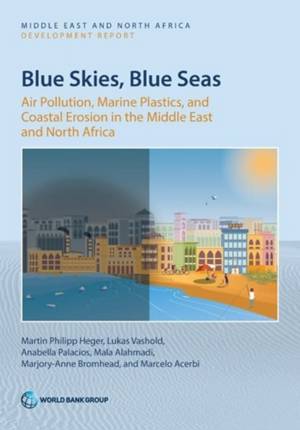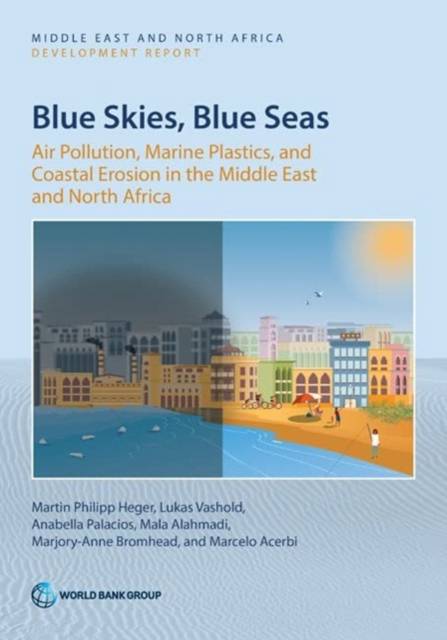
- Afhalen na 1 uur in een winkel met voorraad
- Gratis thuislevering in België vanaf € 30
- Ruim aanbod met 7 miljoen producten
- Afhalen na 1 uur in een winkel met voorraad
- Gratis thuislevering in België vanaf € 30
- Ruim aanbod met 7 miljoen producten
Zoeken
Blue Skies, Blue Seas
Air Pollution, Marine Plastics, and Coastal Erosion in the Middle East and North Africa
Martin Heger, Lukas Vashold, Anabella Palacios, Mala Alahmadi, Marjory-Anne Bromhead, Marcelo Acerbi
€ 79,95
+ 159 punten
Omschrijving
While economic and social indicators in many Middle East and North Africa (MENA) countries have improved over the past three decades, the region's blue natural assets--clean air, healthy seas, and coastlines--have degraded virtually everywhere. Air pollution levels in the region's cities are among the highest in the world. Per capita marine plastic pollution is among the highest in the world; coastal erosion rates are the second fastest in the world. These combined challenges threaten local communities, livelihoods, and economies. In fact, the economic cost of MENA's deteriorating skies and seas is estimated at more than 3 percent of GDP per year. Blue Skies, Blue Seas: Air Pollution, Marine Plastics, and Coastal Erosion in the Middle East and North Africa reviews integrated solutions that the authors identify as the "four I's" - Inform stakeholders about the sources of these challenges. - Provide incentives that improve environmental outcomes for the public and the private sector. - Strengthen institutions to lower air and plastic pollution and to mitigate uncontrolled development and erosion of coastlines. - Invest in abatement options and promote sustainable solutions. Restoring MENA's blue skies and seas will benefit the health, livelihoods, and incomes of residents. There will inevitably be trade-offs, but choosing a path of green growth will create jobs, diversify economies, and make the region a better place for current and future generations. The actions of policy makers today will shape the trajectory of economies and communities for decades to come.
Specificaties
Betrokkenen
- Auteur(s):
- Uitgeverij:
Inhoud
- Aantal bladzijden:
- 402
- Taal:
- Engels
- Reeks:
Eigenschappen
- Productcode (EAN):
- 9781464818127
- Verschijningsdatum:
- 4/05/2022
- Uitvoering:
- Paperback
- Formaat:
- Trade paperback (VS)
- Afmetingen:
- 178 mm x 254 mm
- Gewicht:
- 961 g

Alleen bij Standaard Boekhandel
+ 159 punten op je klantenkaart van Standaard Boekhandel
Beoordelingen
We publiceren alleen reviews die voldoen aan de voorwaarden voor reviews. Bekijk onze voorwaarden voor reviews.








